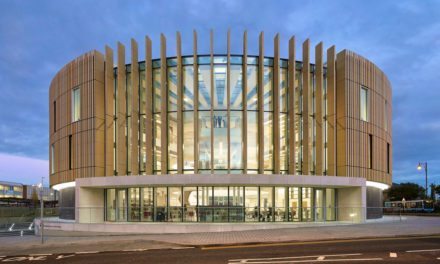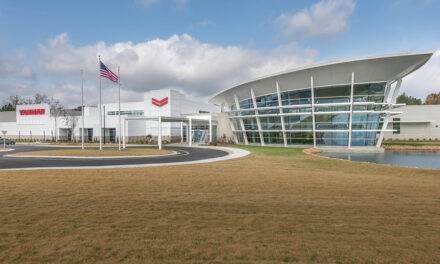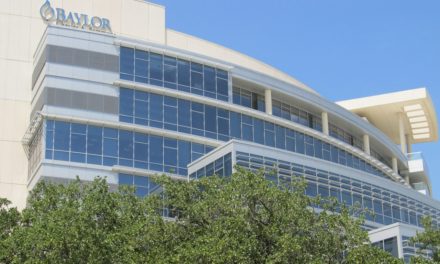Results of a new study commissioned by NCARB show the public values licensure as a means of protection.
Data from a study commissioned by the National Council of Architectural Registration Boards (NCARB) reveals that voters support licensing standards as an important factor in protecting the public health, safety, and welfare.
Conducted by Benenson Strategy Group (BSG), the survey gathered responses from nearly 1,000 U.S. voters on topics regarding public perceptions of regulation, licensing, and the architecture profession. Through the survey, voters were asked questions regarding the value of licensing standards, the distinction between occupations and professions, and important aspects of an architect’s job.
“As conversations arise regarding the appropriate level of licensing standards, these findings provide crucial insight into ways the individual boards regulating the architecture profession continue to move in the right direction when it comes to protecting the public health, safety, and welfare,” said NCARB CEO Michael Armstrong.
Key findings from the survey revealed the majority of voters are in favor of professional licensing. Seventy-six percent of voters agree professional licensing makes consumers feel safe, and 74 percent agree professional licensing ensures competent, qualified professionals are serving the public.
In addition, 89 percent of voters agree it is important for architects, specifically, to be licensed. Recognizing that a key part of an architect’s job is ensuring buildings are safe and structurally sound, voters clearly distinguished architecture as a profession—which should be regulated—rather than an occupation.
Survey participants were informed that individuals working to become architects must complete both experience and examination requirements before earning a license. Reviewing this rigorous process made voters even more likely to support licensure for the architecture profession, raising the percentage of voters who believe it is important that architects be professionally licensed from 89 to 94 percent.
Findings from the survey will be used by NCARB and the Alliance for Responsible Professional Licensing (ARPL)—a new coalition of technical professions recently co-founded by NCARB—as they work to educate policymakers regarding the importance of reasonable licensing standards. Read “AIA, NCARB Help Launch New Coalition to Represent Complex Professions and Licensing Boards” for more information about this alliance.
Learn more about NCARB at www.ncarb.org.
Learn more about ARPL at www.responsiblelicensing.org.
About NCARB
The National Council of Architectural Registration Boards’ membership is made up of the architectural licensing boards of the 50 states, the District of Columbia, Guam, the Northern Mariana Islands, Puerto Rico, and the U.S. Virgin Islands. NCARB, in collaboration with these boards, facilitates the licensure and credentialing of architects to protect the health, safety, and welfare of the public.
To achieve these goals, NCARB works with its Member Boards and volunteers to develop and facilitate standards for licensure, including the national examination and experience program. NCARB also recommends regulatory guidelines for licensing boards and helps architects expand their professional reach through the NCARB Certificate.




